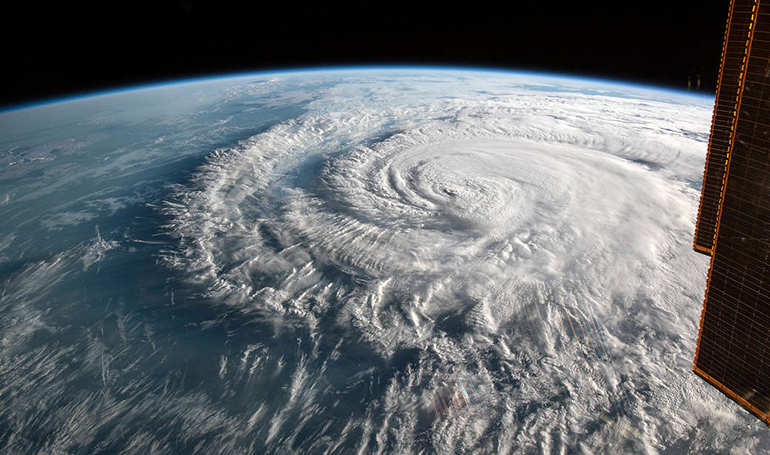Hurricanes are unpredictable. They bring strong winds, heavy rain and flooding that can cause significant damage to homes, businesses, and communities. A little forward thinking can go a long way in financially planning for a hurricane or other severe weather event.
Here are five tips from Felipe Basulto, TD Bank's Retail Market President of South Florida, to help make sure you, and your assets are protected.
Document and store your assets
One of the most important steps of financially planning for a hurricane is to take stock of your important documents. Take photos of birth certificates, a marriage license, passports, and receipts of high-end items, and back them up to the cloud or another alternate location. Then, place the important papers in a fire-safe container and store it in a high spot, away from potentially accumulating water. If it’s difficult to keep documents dry in your home, consider opening a safe deposit box in an area not known for flooding or hurricane damage.
As you clear your yard and secure your windows and doors, take videos of your belongings. By documenting exactly what you had before the storm, you will know what’s missing and what needs replacement or repair. Make sure you film both the inside and outside of your property.
Insurance coverage varies from state to state. For example, it may be more difficult to get wind and water damage coverage for a reasonable price, if at all, in states like Florida where hurricanes are prevalent. The most important thing to remember is to do your research. Find out what coverage you have already. Look into your options and shop around. Understand what your policy covers and what you need to do if you are eligible to make a claim for lost or damaged property.
Stock up
The most common thing people do before a storm is grocery shop for bread, bottled water, and toilet paper. But also make sure you have large containers filled with water, flashlights, and batteries handy. If needed, buy extra formula and diapers for babies. Don’t forget your pets! Make sure they have enough food, water, and a clean carrier. Check in on neighbors, and nearby friends and relatives who may need care and support or could be displaced.
Keep cash on hand as credit card terminals and ATMs won't work if the power is out. The amount of money you need will vary from person to person depending on what you’ve already purchased and how many people are in your home. If you can, visit an ATM pre-storm and take out more cash than you expect to spend. It may come in handy to pay a contractor to cut down a loose tree limb or for fresh fruit being sold in a nearby neighborhood, for example. You can always put extra money back in the bank when skies are sunny again.
Make sure propane tanks are full for use with a portable generator. Propane can also come in handy for grilling if electricity isn’t available. If you have a whole house generator, make sure it’s working well and has undergone routine maintenance. Fill the gas tank on every car you own and, if possible, keep a full, spare container of gas in the garage. Local gas stations can lose power too and you may need to drive to one further away.
Charge cell phones and keep a car adapter nearby. Cars can be a great way to charge a dying phone, or for respite from the hot sun if you lose power and need air conditioning.
During and after the storm
Stay connected with your city, county, and state along with the National Weather Service so you are up to date with the hourly news. Find out where local evacuation sites are located and map out several routes in case roads are closed. Stick together with the other members of your home. Pack an evacuation bag for everyone in your family including your pets and bring your important documents with you.
Once the storm is over, be cautious when first assessing any damage. Keep an eye out for downed wires or loose branches. If there is roof damage, cover the area with a tarp. The weather immediately following a storm may be clear and sunny, but it can rain again a day later causing further issues.
If there is moderate to significant damage to your home, auto or business, contact the respective insurance company right away to file a claim. Many banks may offer assistance or payment waivers to customers following a hurricane or other natural disaster depending on the severity of the storm and community needs, so be sure to communicate with your financial institution.
For more on personal finance topics
If you have more questions about other personal finance topics that matter to you, visit the Learning Center on TD Bank’s website. You can find out more information about TD Bank's services at td.com
We hope you found this helpful. This article is based on information available in July 2024 and is subject to change. It is provided as a convenience and for general information purposes only. Our content is not intended to provide legal, tax, investment, or financial advice or to indicate that a particular TD Bank or third-party product or service is available or right for you.
For specific advice about your unique circumstances, consider talking with a qualified professional.
Links to third-party sites do not constitute an endorsement or an approval by TD Bank of any of the products, services or opinions of the corporation or organization or individual. TD Bank bears no responsibility for the accuracy, legality, or content of the external site or for that of subsequent links. Any third-party trademarks or service marks mentioned herein are the property of their respective owners. Contact the external site for answers to questions regarding its content. See our website Terms of Use for more information.
